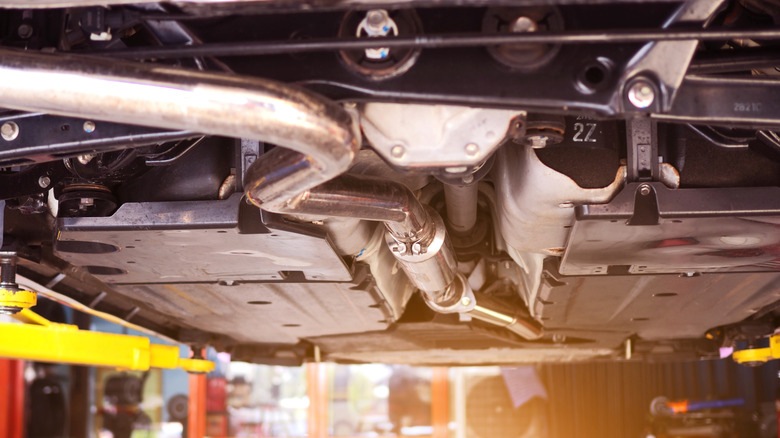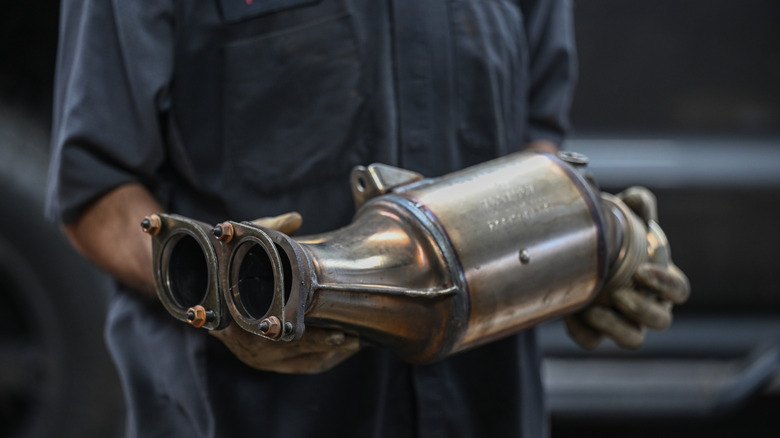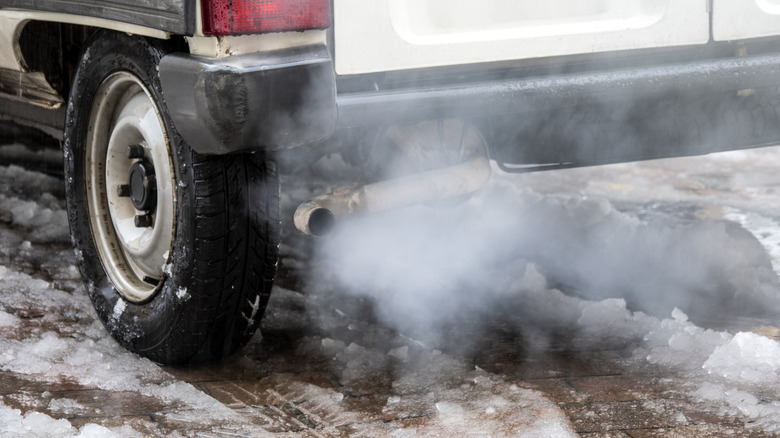Do Diesel Trucks Use Catalytic Converters?
When people talk about catalytic converters, the assumption is that they're talking about gasoline-powered vehicles. But modern diesel use catalytic converters, just like your average gas-powered car. No matter if it's gas or diesel, catalytic converters are there to reduce the amount of harmful pollutants that come out of the vehicle's exhaust.
It wasn't always this way, though: Catalytic converters were originally developed in the 1970s exclusively for gasoline engines. They weren't widely adopted in diesel vehicles until the 1990s, and they didn't truly become a standard for all diesel trucks until after 2000.
It's definitely a good thing they were eventually adopted: Diesel engines put out particulate matter and nitrogen oxides just like gasoline engines. Catalytic converters help offset this environmental impact by chemically transforming toxic gases (like carbon monoxide, unburned hydrocarbons, and nitrogen oxides) into less harmful substances such as carbon dioxide, nitrogen, and water vapor.
Are catalytic converters the same in diesel and gas engines?
Though they serve the same general function, diesel engines and gasoline engines have slightly different catalytic converters. Diesel catalytic converters are made to handle the specific exhaust composition and temperature profile of diesel combustion, while gasoline catalytic converters are made to better suit gas combustion.
It helps that diesel engines and their catalytic systems will incorporate two ceramic blocks inside the converter, both coated with precious metals like platinum and palladium (unlike rhodium, which is more common in gas vehicles). These blocks contain thousands of micro-cells that help with the chemical reactions from exhaust passing through.
Same for the Diesel Particulate Filter (DPF), which is usually right around the catalytic converter as well. The DPF traps and stores fine soot particles from the exhaust before they can be released into the atmosphere. Over time, this filter goes through a regeneration process to burn off the accumulated soot. Combine this with the Selective Catalytic Reduction (SCR), a system that injects a urea-based fluid to neutralize NOx, a diesel's catalytic converter is clearly not the same as a gas engine's.
Signs of trouble with a diesel truck's catalytic converter
Though it's technically possible to drive without a catalytic converter, it's definitely not encouraged (and probably illegal). Without a functioning converter, you get a dramatic increase in emissions along with a number of engine-related issues.
Unfortunately, diesel catalytic converters are targeted just as much as gasoline catalytic converters. Thieves target them because of how much platinum is in a catalytic converter. That and palladium go for high prices, and diesel trucks — with their taller ride height and more accessible undercarriages — make them pretty easy targets.
A missing catalytic converter results a noticeable drop in engine performance, black smoke from the exhaust, sulfur-like odors, and even the risk of headaches when driving with the windows down. In many areas, removing or bypassing a catalytic converter violates environmental regulations and can leave you slapped with steep fines and failed emissions tests. Make sure yours is in working order (not to mention still attached) to avoid all this trouble.


